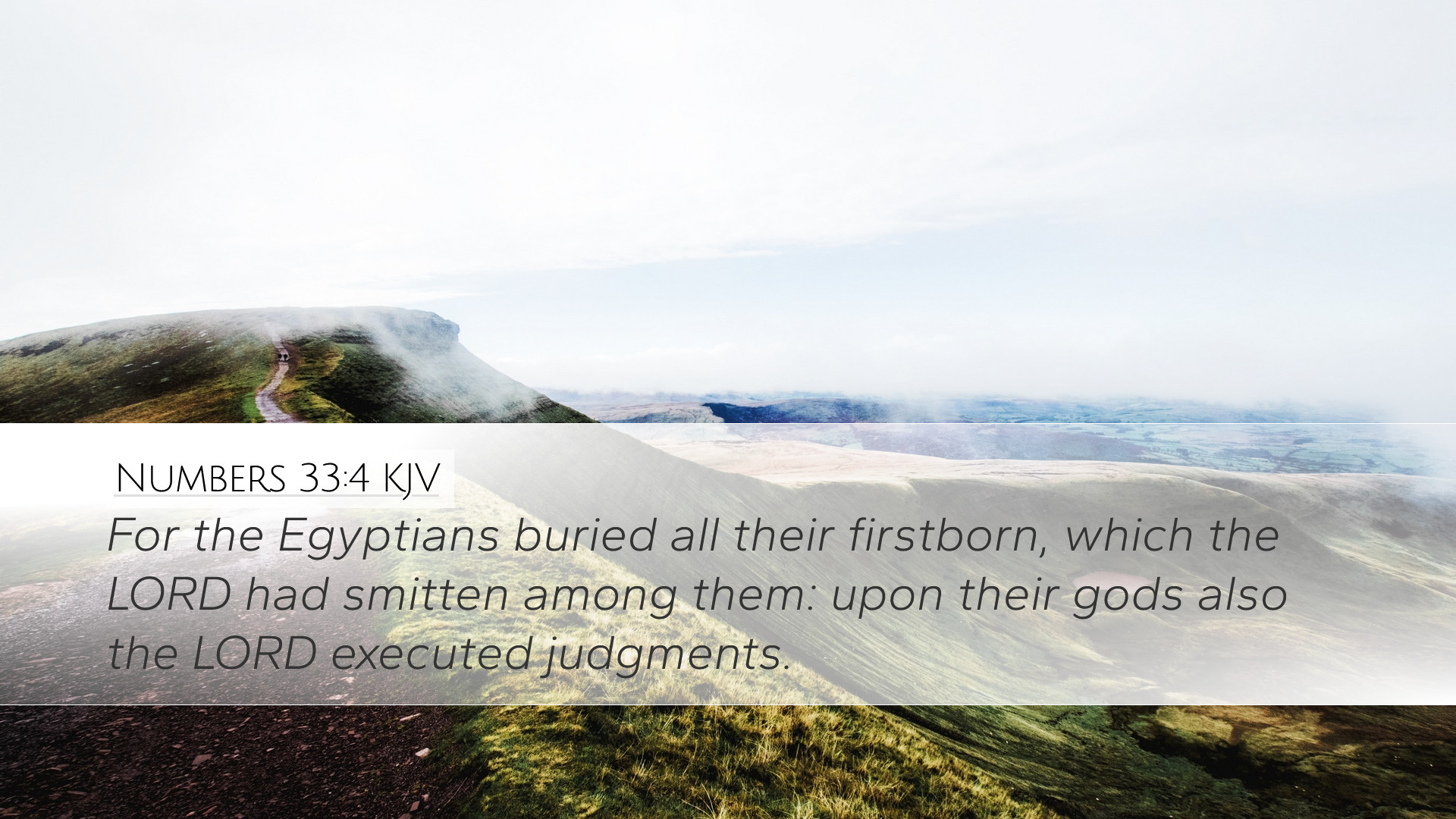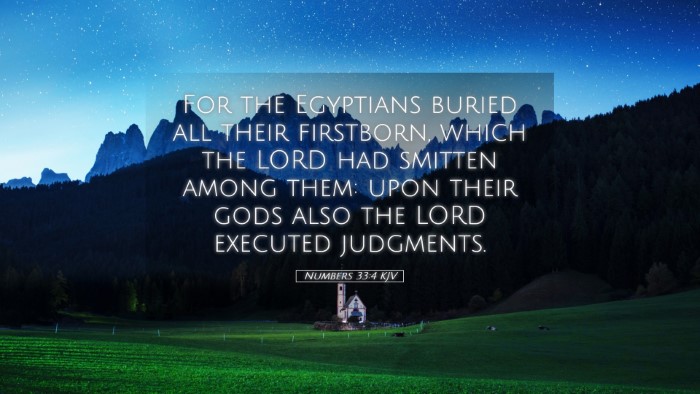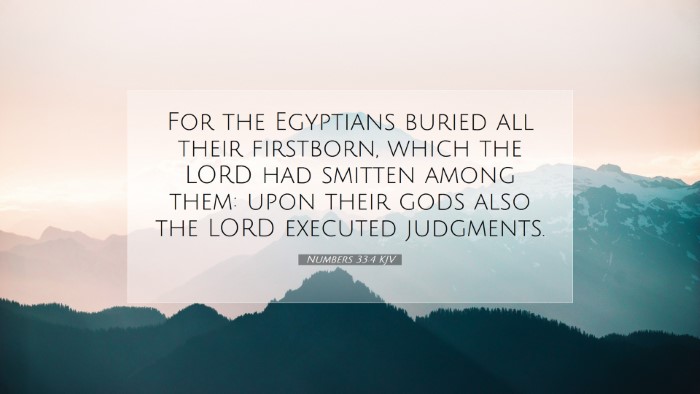Commentary on Numbers 33:4
Verse Reference: Numbers 33:4 - "And the Egyptians buried all their firstborn, which the LORD had smitten among them: upon their gods also the LORD executed judgments."
Introduction
The verse presented in Numbers 33:4 serves as a poignant reminder of the momentous events surrounding the Exodus of the Israelites from Egypt. This verse reflects not only the judgment of God upon the Egyptians but also the vindication of His sovereignty over both mankind and false gods.
Contextual Overview
This passage occurs during a critical juncture in the wandering of the Israelites in the wilderness, as they reflect on God's deliverance and the final judgment executed upon Egypt. The surrounding chapters detail the departure of the Israelites and their journey towards the Promised Land, allowing for deep theological reflection on God's providence, judgment, and grace.
Commentary Insights
Divine Judgment on Egypt
Matthew Henry: Henry emphasizes that the death of the firstborn was the climax of God's judgments upon Egypt for their refusal to release Israel from bondage. He notes that this destruction showcases the dire consequences of opposing God’s will. The grief endured by the Egyptians starkly contrasts with the joy of liberation experienced by the Israelites.
Significance of Burials
Albert Barnes: In his commentary, Barnes highlights the significance of the mass burial of the Egyptians' firstborn. It underscores both the intensity of God's judgment and the finality of death as a result of disobedience. Barnes expounds on the idea that these burdensome losses were indicative of the futility of the Egyptian gods in the face of the one true God who exercises authority over life and death.
Pagan Worship and Its Consequences
Adam Clarke: Clarke elaborates on the reference to God's judgments upon the gods of Egypt. He explains that this act of judgment was not merely punitive but served as a clear repudiation of the idolatry that pervaded Egypt. Each plague, culminating in the death of the firstborn, can be seen as a direct counter to the deities worshiped by the Egyptians, ultimately rendering them powerless.
Theological Reflections
The Sovereignty of God
This verse serves as a profound lesson on the sovereignty of God. Just as He executed judgment upon the gods of Egypt, so too does He reign supreme over all beings. The proclamation of God’s authority is an enduring theme throughout Scripture, reinforcing for future generations that there is no power greater than Him.
The Nature of Redemption
The juxtaposition of judgment and redemption within this verse invites reflection on the broader narrative of salvation. God’s deliverance of Israel from Egypt is a prototype of His ultimate redemptive plan through Christ, who brings freedom from sin and death.
Lessons for Today's Believers
Pastors and theologians can draw valuable lessons from this verse concerning the nature of God’s justice and mercy. The remembrance of God’s judgment helps Christians to understand the protective nature of His decrees and the seriousness with which He views idolatry and disobedience.
Application for Ministry and Study
For Pastors
Pastors can use this passage to teach about the consequences of spiritual blindness and the supremacy of God. Emphasizing the character of God as both a judge and redeemer, they can engage their congregations in discussions about the importance of obedience and true worship.
For Students and Scholars
Students of theology will find rich material for exploration in this verse. Researching the cultural and religious background of ancient Egypt will elucidate the historical significance of the text while drawing connections to modern-day issues such as idolatry, spiritual warfare, and the nature of divine justice.
Conclusion
Numbers 33:4 encapsulates a profound theological truth about God’s power over nations, idols, and the very fabric of life. It beckons believers from all walks of faith to remember that while God is a God of mercy, He is equally a God of judgment—a dynamic that should inspire reverence and commitment to His commandments.


